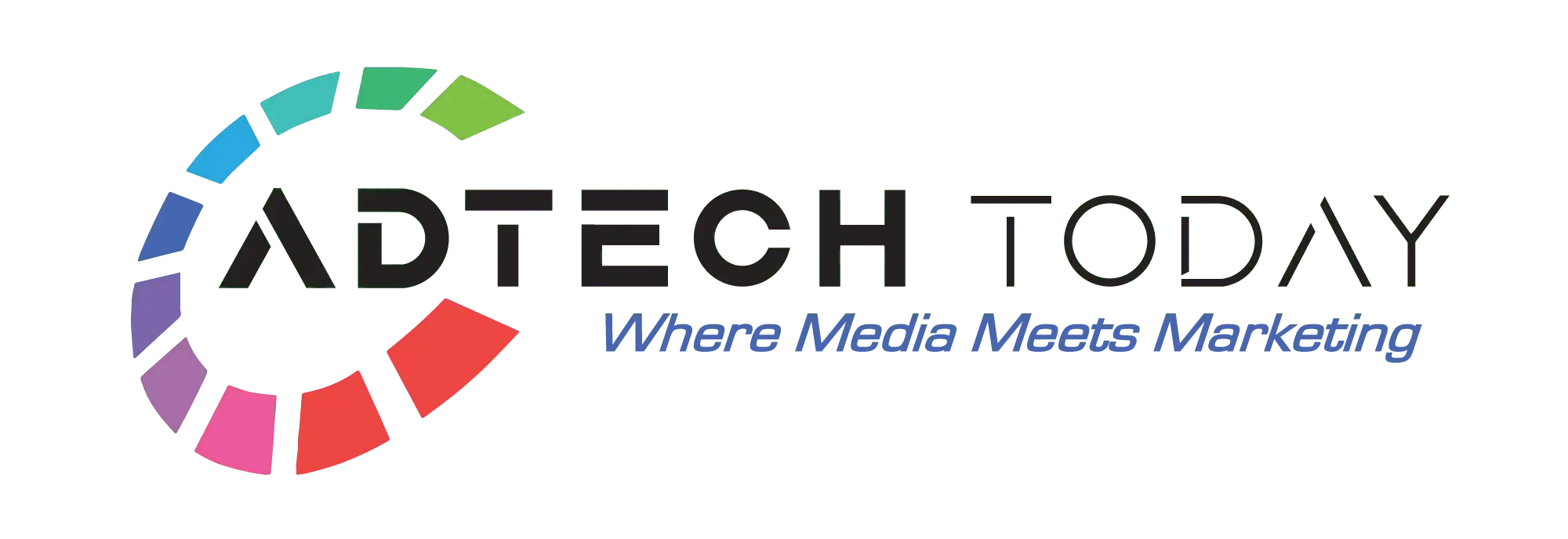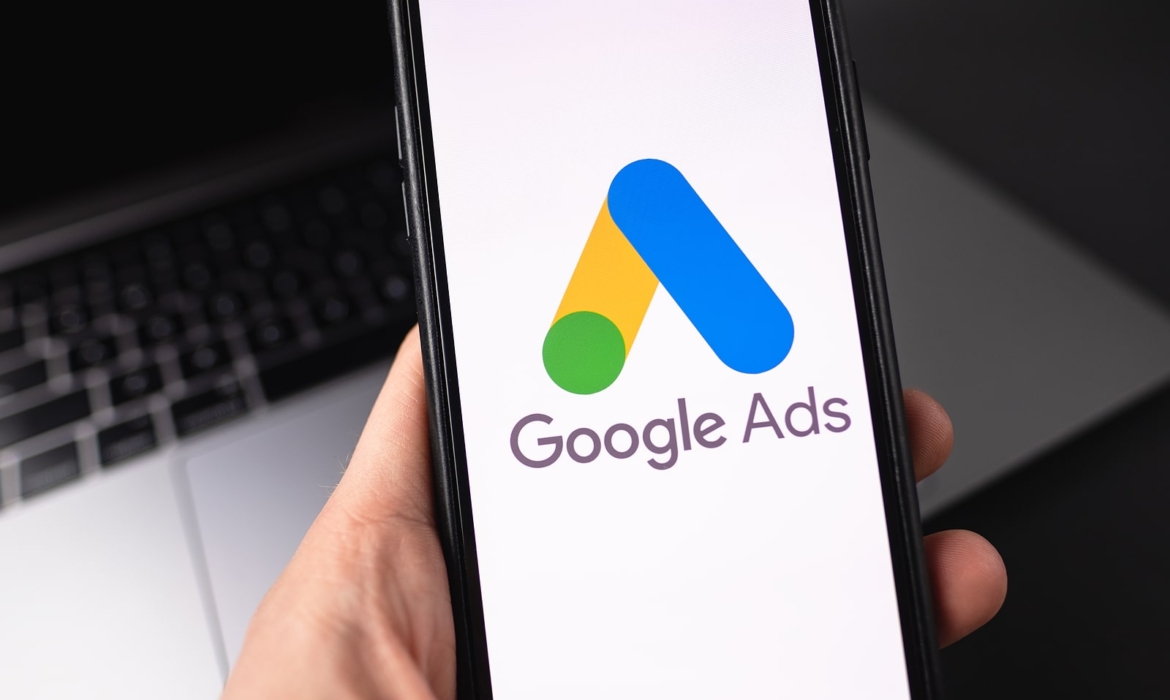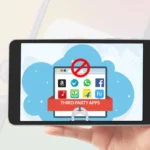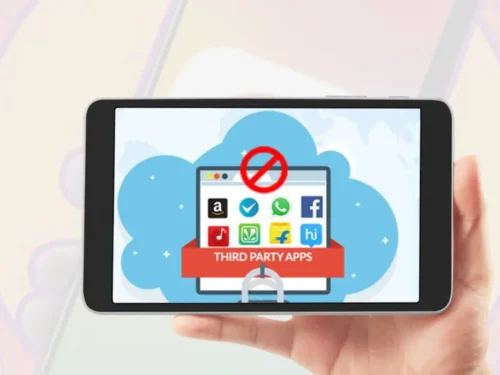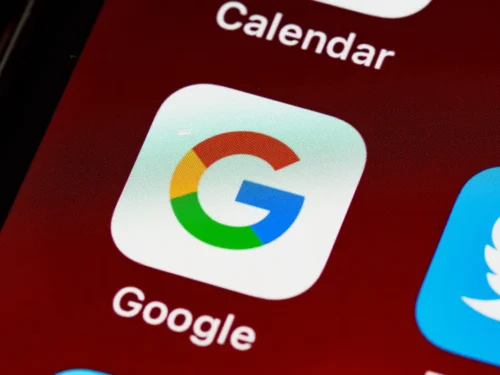Google Launches Google Ads Data Manager for First-Party Data
Google has created an advertising measurement tool that integrates with first-party data from marketers. It is made to function without browser cookies and other data tools that use antiquated techniques to measure performance. The measurement tool, Google Ads Data Manager, will be made accessible in Google Ads from the beginning of 2024. As the business continues to simplify the administration and use of first-party data, the product plan calls for expanding it to additional Google platforms. The tool will make it easier to connect to and utilize first-party data. It centralizes all data management controls, allowing for more income and improved business outcomes.
Google Ads Data Manager for Advertisers
Less than one-third of marketers, according to Google, consistently and successfully access and integrate first-party data across channels. This issue is resolved by Google Ads Data Manager, which streamlines the administration of first-party data connections and the procedure for utilizing that data for commercial purposes. As the advertising business enters the new year and Google deprecates third-party cookies, advertisers will gain knowledge about integrating data sources and protecting consumer data privacy. When it launches, it will make it easier to enable improved conversions for leads and Customer Match from many partners while still maintaining the essential functionality of each service.
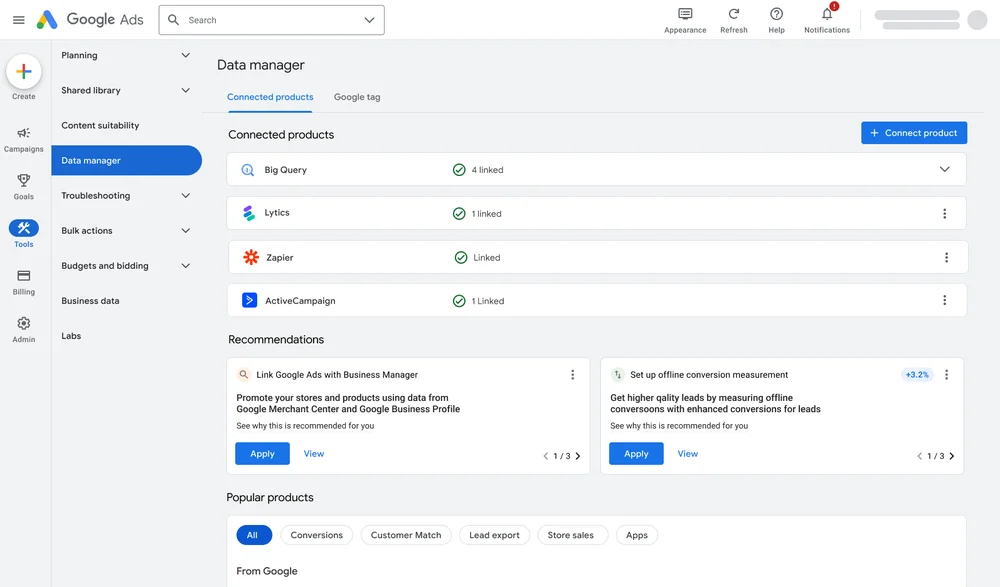
Image credit- Google
Read More: Google Opens Automatically Created Assets Publicly to Boost Efficiency
A number of data sources, such as customer relationship management (CRM) and customer data platforms (CDPs), will be able to be connected by advertisers. Along with marketing tools like Shopify Audiences, this will also incorporate data sources like ActiveCampaign and Pipedrive. If Google Ads Data Manager is a success, it will be simpler to track client interactions with the Google tag and off-website transactions. Instead of altering how Google’s products function, the platform makes it easier for advertisers to use them. Data utilization in marketing is easier because it requires little to no coding expertise.
Benefits of the first-party data measurement tool
Analysts can build new data links using a single collaborative interface. Additionally, marketers can use discrete data to track conversions to target customers with relevant adverts. Zapier and CDPs, such as Lytics, will also provide data sources through cloud-based data storage solutions. Google wants the platform to give users access to all types of data through a single collaborative interface. This will allow analysts to make new data linkages. Furthermore, it will enable marketers to use discrete data to track conversions or target people with appropriate ads
Read More: Samsung Ads and Epsilon Partner for First-Party Data Advancements
Author Profile

- Netra
- Netra is a Dual Masters graduate in International Business and Marketing. She is a content-writing enthusiast and a social media addict. In her downtime, you will find her headbanging to Pop songs from around the world. She is also a sports fanatic and especially loves F1, Volleyball, and Cricket. Her hobbies are baking and watching Anime.
Latest Posts
 MediaJuly 26, 2024Rediffusion Unveiles Konjo, a Specialist Agency for New Age Startups
MediaJuly 26, 2024Rediffusion Unveiles Konjo, a Specialist Agency for New Age Startups MediaJuly 26, 2024Farah Golant Joins Seedtag Board of Directors
MediaJuly 26, 2024Farah Golant Joins Seedtag Board of Directors MediaJuly 26, 2024PRCA MENA Announces Imad Lahad as Vice Chair of the Board
MediaJuly 26, 2024PRCA MENA Announces Imad Lahad as Vice Chair of the Board MarketingJuly 26, 2024Google Shelves its Plans to Remove Third-Party Cookies | Experts Speak
MarketingJuly 26, 2024Google Shelves its Plans to Remove Third-Party Cookies | Experts Speak
